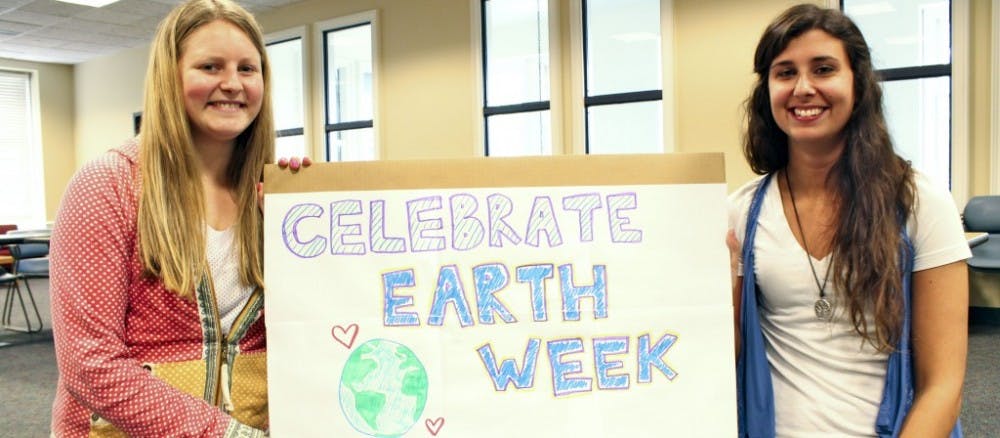The Office of Sustainability's series of Earth Week events made practicing an eco-friendly lifestyle accessible by narrowing the focus of the global movement to Elon students specifically.
Those involved in organizing the week’s events said they hoped students would be motivated to use their knowledge about sustainable living to engage in environmentally-friendly practices, said sophomore Lily Siegal, an Office of Sustainability intern.
“People are becoming more and more educated about (sustainability), and now a lot of us know what we can do, and what we should be doing,” Siegal said. “We wanted to focus more on what kind of commitments we can actually make in order to help the environment.”
Many of the week’s events, which took place April 17-20, emphasized the ways that reusing resources can help to reduce waste.
The Giving Tree event April 18 encouraged students to donate and receive second-hand items. The following day, Colin Beavan, an author and self-proclaimed environmentalist, spoke to students about his own efforts to live more sustainably.
Representatives for the Office of Sustainability said they hoped students would be influenced to live more sustainably, not just through these events, but also by following examples set by one another.
“One of the most powerful aspects of individual actions is their ability to influence others, creating an even larger impact,” said Elaine Durr, director of Sustainability.
Being on a small college campus can make it easier to reduce one's impact because it is easy to walk or ride a bike to class, Siegal said. But college life presents some challenges to sustainable living.
“Everybody at Elon seems to be so busy and constantly moving from one extracurricular to the next, so sometimes they don’t stop to think about (their impact on the environment),” Siegal said.
Eating grab-and-go food as opposed to cooking or eating in dining halls with compost bins is one way in which students often generate waste, she said.
“I think that most students would definitely choose to live more sustainably if they felt the urgency of doing so,” said junior Millie Rosen, who attended the sustainable College Coffee April 17.
Although students know they are supposed to conserve resources, college life can make doing so especially difficult, Rosen said.
“Because you move almost every year to a new housing arrangement, and your schedule is always changing, you don’t end up having a very stable way of living,” Rosen said. “You tend to just keep buying new things, rather than reusing the stuff you already have for your dorm or for classes.”
It is likely that holding Earth Week events won’t make a large impact on students, because there are still convenience issues that make students less likely to change their ways of living, Rosen said.
“It’s not anybody’s fault, but I don’t think (members of) society make big changes unless they feel a sense of urgency,” she said.
But Durr remains optimistic that the events sponsored by the Office of Sustainability will motivate students to make lasting changes in the ways they live.
These changes can also help individuals save money and improve their health and well-being, Durr said.
“We hope that the positive actions individuals take to reduce their impact will continue throughout the year,” Durr said. “We should celebrate Earth Day every day.”


